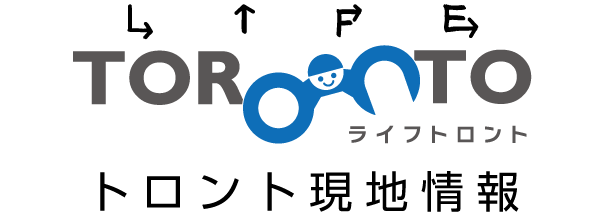2020年3月15日まで遡り、対象となる雇用主に最大12週間、雇用賃金に対して75%の賃金助成金を給付するカナダ緊急賃金助成金制度(Canada Emergency Wage Subsidy)。
既に支援を受けている方も多いかと思いますが、ジャスティントルドー首相が本日の会見で、Canada Emergency Wage Subsidyを2020年12月まで延長する旨を発表しました。
参考:Global NEWS
Great news for ?? businesses and workers! To continue supporting your safe reopening, our government has announced we are extending the #CEWS, covering up to 75% of employee wages, until December.
Learn more about the subsidy at: https://t.co/r6Nrj8dr4W pic.twitter.com/WDx3Voh4Qu
— MPIqra Khalid Office (@IqraKhalidMP) July 13, 2020
Through the Canada Emergency Wage Subsidy, the Government of Canada will subsidize up to 75% of wages for qualifying businesses to help employers keep people on the payroll. Get the details ⬇️ #COVID19 pic.twitter.com/GFcO114Amy
— CanadianPM (@CanadianPM) March 31, 2020
先日LifeTorontoでもお届けしましたが、カナダ政府が新型コロナウイルスが原因で30%以上減収した全企業(規模関係無し)に最大75%の助成金を提供することを発表しました。
そこで今回は、カナダ緊急賃金助成金制度(Canada Emergency Wage Subsidy)について記されているカナダ政府のページを日本語訳にしてみました。
以下、カナダ政府または公式発表の参照サイトを掲載しておりますので、最終的にはサイトを確認の上、ご自身の責任で確認ください。また、本件に関するお問合せは受けかねます。もし誤訳や解釈などが間違っている場合はご指摘頂いた後、できるだけ速やかに修正するように致します。皆さまどうぞご協力ください。
カナダ緊急賃金助成金制度(Canada Emergency Wage Subsidy)の日本語訳
The proposed Canada Emergency Wage Subsidy will help employers of all sizes keep their employees working. Find out more: https://t.co/wI3jebCCOi #COVID19 #EconomicResponse pic.twitter.com/5ja20WKxVz
— FinanceCanada (@FinanceCanada) April 1, 2020
今回日本語に意訳したのは、カナダ政府の The Canada Emergency Wage Subsidy のページになります。
以下の内容は4月2日時点のものとなるので、最新の情報を知りたい方は政府のウェブサイトをチェックしてみてください。
What It Means for Canadian Businesses
賃金助成金制度がカナダの企業にもたらす影響に関して
To help businesses keep and return workers to their payroll through the challenges posed by the COVID-19 pandemic, the Prime Minister, Justin Trudeau, proposed the new Canada Emergency Wage Subsidy. This would provide a 75 per cent wage subsidy to eligible employers for up to 12 weeks, retroactive to March 15, 2020.
This wage subsidy aims to prevent further job losses, encourage employers to re-hire workers previously laid off as a result of COVID-19, and help better position Canadian companies and other employers to more easily resume normal operations following the crisis. While the Government has designed the proposed wage subsidy to provide generous and timely financial support to employers, it was done with the expectation that employers will do their part by using the subsidy in a manner that supports the health and well-being of their employees.
COVID-19によるパンデミックで、カナダの企業が労働者への給与の支払いを継続すること、また職を失った労働者に再度給与を与えることが困難であるこの課題に対して、ジャスティン・トルドー首相は新しくカナダ緊急賃金助成金制度を提案しました。
この制度により、2020年3月15日まで遡り、対象となる雇用主に最大12週間、雇用賃金に対して75%の賃金助成金が給付されます。
この賃金助成金は今以上の失業の増加を防ぎ、そしてCOVID-19の影響で一時解雇された従業員の再雇用を雇用主に促進するのを目的とします。
また、カナダの企業または雇用主がこの危機の後において、通常業務の再開がより簡単にできるように今支援することも目的としています。
政府としては、雇用主に対して寛大かつ早急である財政的な支援を提供するために、カナダ緊急賃金助成金案を提案しました。この助成金を利用することによって、雇用主が各々の従業員に対して、健康とその幸せのためのサポートが提供されることを政府は期待しております。
Eligible Employers
助成金受領の雇用主の資格に関して
Eligible employers would include individuals, taxable corporations, and partnerships consisting of eligible employers as well as non profit organizations and registered charities.
Public bodies would not be eligible for this subsidy. Public bodies include municipalities and local governments, Crown corporations, public universities, colleges, schools and hospitals.
This subsidy would be available to eligible employers that see a drop of at least 30 per cent of their revenue (see Eligible Periods). In applying for the subsidy, employers would be required to attest to the decline in revenue.
この助成金制度を利用できる資格がある「雇用主」についてですが、個人、課税法人、非営利団体または登録された慈善団体などといった、組織として構成されているパートナーシップ的関係もこの資格がある雇用主と見なされます。
なお、公共団体はこの助成金の対象にはなりません。公共団体には、地方自治体や地方政府、または公共企業体、公立大学、カレッジ、学校など、また病院などが含まれます。
なお、この助成金を受けるには、収益の少なくとも30%の減少が見られる雇用主のみが利用できます(詳細は添付の適格期間を参照してください)。助成金を申請する際には雇用主が収入の減少を証明する必要があります。
Calculating Revenues
収益の算出に関して
An employer’s revenue for this purpose would be its revenue from its business carried on in Canada earned from arm’s-length sources. Revenue would be calculated using the employer’s normal accounting method, and would exclude revenues from extraordinary items and amounts on account of capital.
For non-profits and charities, the government will continue to work with the sector to ensure the definition of revenue is appropriate to their specific circumstances.
助成金の資格に関して収益損失に関する条件においては、雇用主の収益というのはカナダで行われている事業からの収益であり、この収益は雇用主の通常の会計方法を使用して計算され、資本運用による収益や、特別な項目からの収益は除外されます。
非営利団体と慈善団体については、政府は引き続き該当部門と協力して、収益の定義または特定の状況によって適切であるかどうかをまた裁定します。
Amount of Subsidy
助成額に関して
The hardest hit employers – of all sizes and across all sectors – are eligible, and applications will be open in the coming weeks. We are working around the clock to get you the help you need. Learn more : https://t.co/Ge77woFgxS
— Bill Morneau (@Bill_Morneau) April 1, 2020
The subsidy amount for a given employee on eligible remuneration paid between March 15 and June 6, 2020 would be the greater of:
・75 per cent of the amount of remuneration paid, up to a maximum benefit of $847 per week; and
・the amount of remuneration paid, up to a maximum benefit of $847 per week or 75 per cent of the employee’s pre-crisis weekly remuneration, whichever is less.
Further guidance with respect to how to define pre-crisis weekly remuneration for a given employee will be provided in the coming days.
2020年3月15日から6月6日の間に支払われた賃金にて、ひとりの従業員への助成額は次の条件において額の大きい方とされます。
・一従業員へ支払われる給料の75%を助成金とし、最大847カナダドル/週の給付
・一従業員へ支払われる賃金への助成金として最大847カナダドル/週の給付、またはCOVID- 19の影響がでる前の週給の金額の75%を助成金の給付のどちらかが低い方
特定の従業員のCOVID- 19による影響前の週に関して査定あるいは決める方法に関する詳細となるガイドラインは、近日中に提供されます。
In effect, employers may be eligible for a subsidy of up to 100 per cent of the first 75 per cent of pre-crisis wages or salaries of existing employees. These employers would be expected where possible to maintain existing employees’ pre-crisis employment earnings.
Employers will also be eligible for a subsidy of up to 75 per cent of salaries and wages paid to new employees.Eligible remuneration may include salary, wages, and other remuneration. These are amounts for which employers would generally be required to withhold or deduct amounts to remit to the Receiver General on account of the employee’s income tax obligation. However, it does not include severance pay, or items such as stock option benefits or the personal use of a corporate vehicle.
A special rule will apply to employees that do not deal at arm’s length with the employer. The subsidy amount for such employees will be limited to the eligible remuneration paid in any pay period between March 15 and June 6, 2020, up to a maximum benefit of $847 per week or 75 per cent of the employee’s pre-crisis weekly remuneration.
There would be no overall limit on the subsidy amount that an eligible employer may claim.
Employers must make their best effort to top-up employees’ salaries to bring them to pre-crisis levels.
事実上、雇用主はCOVID- 19の影響を受ける前の、既存の従業員の給与の最初の75パーセントの助成金において、その額の100パーセント受ける資格がある可能性もあります。このような状況に該当する雇用主は、可能であれば既存の従業員の影響を受ける前の雇用収入をそのまま維持することが政府より期待されています。
雇用主はまた、これから新雇用する社員にも支払われる年収、月収などの定期収入と、時給など賃金の最大75%の補助金を受ける資格があります。
適格とされる給付額のもとになる部分として、年収や月収などの定期収入、時給収入、およびその他の報酬が含まれる場合があります。これらは、雇用主が従業員の所得税義務を理由に、一般的に従業員に入金する金額にたいして源泉徴収または控除する必要がある総額とします。ただし、解雇手当や自社株購入手当、社用車の個人使用への手当などは含まれません。
特別な規則として、雇用主と従業員が独立した対等な関係ではなく雇用契約である場合:そのような関係下での従業員へ補助金は、2020年3月15日から6月6日までの任意の給与期間に支払われる賃金として、最大給付額は週あたり847カナダドル、または従業員のCOVID- 19の影響を受ける前の週給の75%になります。
申請する資格のある雇用主が政府に請求することができる補助金の額に関しては、基本全体に対する特別な制限はありません。
雇用主は、この政策を利用することによって従業員の給与を補充し、COVID- 19の影響を受ける前の給与レベルに引き上げるために、最善の努力をしなければなりません。
Eligible Periods
対象期間
Eligibility would generally be determined by the change in an eligible employer’s monthly revenues, year-over-year, for the calendar month in which the period began. The amount of wage subsidy (provided under the COVID-19 Economic Response Plan) received by the employer in a given month would be ignored for the purpose of measuring year-over-year changes in monthly revenues.
・For example, if revenues in March 2020 were down 50 per cent compared to March 2019, the employer would be allowed to claim the Canadian Emergency Wage Subsidy (as calculated above) on remuneration paid between March 15 and April 11, 2020.
The table below outlines each claiming period and the period in which it has a decline in revenue of 30 per cent or more.
対象期間においては通常、期間が始まった暦月の、申請資格がある雇用主の月次収益の前年比の変化によって決定されます。該当する月に雇用主が受け取る賃金補助金(カナダCOVID-19経済的対応計画の下で提供される)から得られる入金に関しては、月次収益の前年比の変化の測定には含まれません。
・例えば、2020年3月の収益が2019年3月と比較して50%減少した場合は、雇用主は2020年3月15日から4月11日の間に支払われた報酬についてカナダ緊急賃金助成金(上記で計算)の請求ができます。
以下の表では、助成金の請求期間を、30%以上の収益の減少が見られる期間と対比的に示しています。
Eligible Period
| Claiming period 助成金の請求期間 |
Reference period for eligibility 参照となる期間対象 |
|
|---|---|---|
| Period 1 期間1 |
March 15 – April 11 3月15日から4月11日 |
March 2020 over March 2019 2020年3月と2019年3月を比べて |
| Period 2 期間2 |
April 12 – May 9 4月12日から5月9日 |
April 2020 over April 2019 2020年4月と2019年5月を比べて |
| Period 3 期間3 |
May 10 – June 6 5月10日から6月6日 |
May 2020 over May 2019 2020年5月と2019年6月を比べて |
For eligible employers established after February 2019, eligibility would be determined by comparing monthly revenues to a reasonable benchmark.
2019年2月以降に設立された企業の場合に関する適格性は、毎月の収益を妥当なベンチマークと比較することによって決定されます。
How to Apply
申請方法
Eligible employers would be able to apply for the Canada Emergency Wage Subsidy through the Canada Revenue Agency’s My Business Account portal as well as a web-based application. Employers would have to keep records demonstrating their reduction in arm’s-length revenues and remuneration paid to employees. More details about the application process will be made available shortly.
申請資格のある雇用主は、カナダ歳入庁の「マイビジネスアカウント」ポータルおよびWebベースでのオンライン申請を通じて、カナダ緊急賃金助成金を申請することができます。雇用主は、従業員に支払われる給与と、独立企業間収益においての減少を示す記録を保管する必要があります。申請プロセスの詳細については、また近日中に追って公開されます。
Ensuring Compliance
コンプライアンスの確保

In order to maintain the integrity of the program and to ensure that it helps Canadians keep their jobs, the employer would be required to repay amounts paid under the Canada Emergency Wage Subsidy if they do not meet the eligibility requirements and pay their employees accordingly. Penalties may apply in cases of fraudulent claims. In addition, anti abuse rules will be proposed to ensure that the subsidy is not inappropriately obtained and to ensure that employees are paid the amounts they are owed. The government is considering proposing to create new offences that will apply to individuals, employers or business administrators who provide false or misleading information to obtain access to this benefit or who misuse any funds obtained under the program. The penalties may include fines or even imprisonment.
この助成金政策の完全性を維持するために、またカナダ人が仕事を続けることへのサポートを確実とするために、雇用主は、資格要件を満たしていないと判明した場合においては、カナダ緊急賃金助成金で給付された金額を政府に返済し、また、従業員には賃金を支払う必要があります。
悪意があり詐欺的な申し立てが確認された場合は、罰則が適用される場合があります。
さらに、補助金が不適切に獲得され給付されないように、従業員の未払いとなる給与額分、確実に支払われるようにするためにも、政府は悪用防止規則を準備しております。
政府は今回の賃金助成金への申請において、虚偽、または誤解を招く情報を提供した、またはこのプログラムの下で得られた資金を悪用する個人、または雇用主、または事業管理者に適用される新しい刑法の提案を検討しています。この刑法による罰則には、罰金または懲役が含まれる場合があります。
Interaction with 10 per cent Wage Subsidy
10%の賃金助成金との相互性
On March 18, 2020, the Prime Minister announced a temporary 10 per cent wage subsidy. For employers that are eligible for both the Canada Emergency Wage Subsidy and the 10 per cent wage subsidy for a period, any benefit from the 10 per cent wage subsidy for remuneration paid in a specific period would generally reduce the amount available to be claimed under the Canada Emergency Wage Subsidy in that same period.
2020年3月18日にてトルドー首相より公表された一時的な10%の賃金助成金案に関しては、今回のカナダ緊急賃金助成金とは異なります。
該当期間にて、10%の既存の賃金助成と今回の緊急賃金助成金にも両方適格となる雇用主は、特定の期間に支払われる賃金に対する10%賃金助成金を受けた後、一般に、同じ時期でカナダ緊急賃金助成金を受ける際には、その10%を新しい助成金より控除することが定められております。
Interaction with the Canadian Emergency Response Benefit
カナダ緊急対応手当との関連性
An employer would not be eligible to claim the Canada Emergency Wage Subsidy for remuneration paid to an employee in a week that falls within a 4-week period for which the employee is eligible for the Canadian Emergency Response Benefit.
Employers who are not eligible for the Canada Emergency Wage Subsidy would still be able to furlough employees who will receive up to $2,000 a month.
従業員がカナダ緊急対応手当の対象となる4週間の期間内に、雇用主その従業員に支払われるはずである給与について、このカナダ緊急賃金助成金を利用して給付を受ける資格はありません。
カナダ緊急賃金助成の対象とならない雇用主は、月額最高2,000ドルを受け取る従業員を引き続き雇用し続けることが可能となります。
Government Assistance
政府からの支援
The usual treatment of tax credits and other benefits provided by the government would apply. As a consequence, the wage subsidy received by an employer would be considered government assistance and be included in the employer’s taxable income.
Assistance received under either wage subsidy would reduce the amount of remuneration expenses eligible for other federal tax credits calculated on the same remuneration.
税額控除および政府によって提供されるその他の給付と同じように、通常の給付の扱いが今回にも適用されます。その結果として、雇用主が受け取る賃金補助金は政府からの援助と見なされ、雇用主の課税所得に含まれます。 いずれかの賃金助成金支援の下で受けられる給付金は、賃金の支出からマイナスされて計算されるので、他のカナダ連邦税額控除の対象となる給与の総額を減らすこととなるでしょう。
How businesses will benefit from the Canada Emergency Wage Subsidy
企業がカナダ緊急賃金助成金よりどのように恩恵をうけるか

Bruno and Tisha run a floral shop in Burnaby, British Columbia. They have four full time employees, each earning $800 per week, and 6 part-time employees, each earning $400 per week, for a total weekly payroll of $5,600. Bruno and Tisha have closed their shop and are only fulfilling online orders during this challenging period. They are keeping all of their employees on the payroll, paying them their full regular wages, despite their revenues being down by 30 per cent. Bruno and Tisha would be eligible for a weekly wage subsidy of $4,200 ($600 for each of their full-time employees and $300 for each of their part-time employees).
ブルーノさんとティシャさんは、ブリティッシュコロンビア州のバーナビー市にて、花屋を経営しています。彼らには4人のフルタイムの従業員がいて、それぞれが週に800カナダドルを稼いでおり、6人のパートタイムの従業員がそれぞれに週に400カナダドルを稼いでいます。故に、週の総給与額は5,600ドルとなります(800x4+400x6=5600)。
ブルーノさんとティシャさんはCOVID- 19の影響を受け、この困難な時期にて、オンラインのみで注文を受け営業していました。彼らはこの状況下でお店の収益がすくなくとも30%減少しましたが、この緊急賃金助成金制度を利用すれば、すべての従業員を解雇せず、そして影響を受ける前の賃金全額を従業員全員に支払えるようになります。
ブルーノさんとティシャさんは、4,200カナダドル(正社員1人あたり600ドル、パートタイム従業員1人あたり300ドル)の毎週の賃金助成が受けられます。
Canada’s COVID-19 Economic Response Plan– Cost and Implementation
カナダのCOVID- 19経済的対応計画と詳細
These measures are part of the Government of Canada’s COVID-19 Economic Response Plan – a comprehensive plan to help ensure that Canadians can pay for essentials like mortgages, rent and groceries, and to help businesses continue to pay their employees and their bills during this time of uncertainty.
現状の不確定であるCOVID- 19の影響下で、カナダ政府がCOVID-19経済的対応計画を通して支援を施す一部の詳細を共有します。
すべてのカナダ人が住宅ローン、家賃、食料品などの必需品に支払うことができるようにすること、企業がこの間も従業員に給与が支払い続けることができるようにするのが目的です。
Protecting Health and Safety
健康の安全の保護に対しての支援金額
| 2020-2021 Impact 2020年―2021年への影響 |
|
|---|---|
| COVID-19 Response Fund (including $500 million in support for Provinces and Territories (2019-2020)) COVID-19対応基金(州および準州(2019-2020)への5億カナダドルの支援金を含む) |
$1.1 billion 11億カナダドル |
| Funding for Personal Protective Equipment and Supplies (of which, $200 million in 2019-20) 個人用保護具および備品への資金提供(2019〜20年に2億カナダドル) |
$2 billion 20億カナダドル |
| Total – Protecting Health and Safety 健康と安全の保護への支援総額 |
$3 billion 30億カナダドル |
| Direct Support Measures 直接支援策 |
|
| Canada Emergency Response Benefit カナダ緊急対応手当 |
$24 billion 240億カナダドル |
| Enhanced GST Credit 増加された消費税控除手当 |
$5.5 billion 55億カナダドル |
| Enhanced Canada Child Benefit 増加されたカナダ児童手当 |
$1.9 billion 19億カナダドル |
| Temporary Business Wage Subsidy 一時的な賃金助成金手当 |
$975 million 9億7500万カナダドル |
| Canada Emergency Wage Subsidy カナダ緊急賃金助成金手当 |
$71 billion 710億カナダドル |
| Canada Student Loan Payments カナダ学生ローン支払い金 |
$190 million 1億9000万カナダドル |
| Support for Indigenous Communities 先住民コミュニティへのサポート |
$305 million 3億500万カナダドル |
| Support for the homeless (through Reaching Home) ホームレス事業へのサポート(リーチングホーム団体を通して) |
$157.5 million 1億5750万カナダドル |
| Support for women’s shelters and sexual assault centres, including for facilities in Indigenous communities 先住民コミュニティの施設を含む、女性専用避難所と性的暴行支援センターへのサポート |
$50 million 5000万カナダドル |
| Support for Seniors (2019-20), Children and Youth 高齢者へのサポート(2019-20)、子供と青少年へのサポート |
$16.5 million 1650万カナダドル |
| Lower RRIF Minimum Withdrawal 登録退職所得基金への積立額の引き下げ調整 |
$495 million 4億9500万カナダドル |
| Support for the Air Transportation Sector 航空交通部門へのサポート |
$331.4 million 3億3140万カナダドル |
| Total – Direct Support Measures 直接支援額への支援総額 |
$105 billion 1050億カナダドル |
| Liquidity Support 流動性への支援 |
|
| CRA/CBSA liquidity support to businesses and individuals カナダ歳入庁 / カナダ国境サービス庁からのビジネスと個人への流動性サポート |
|
| Income Tax Payment Deferral until September 9月までの所得税支払い延期 |
$55 billion 550億カナダドル |
| Sales Tax Remittance and Customs Duty Payments Deferral 消費税献上と関税支払いの延期 |
$30 billion 300億カナダドル |
| Total – CRA/CBSA liquidity support カナダ歳入庁 / カナダ国境サービス庁からのビジネスと個人への流動性サポート 支援総額 |
$85 billion 850億カナダドル |
| Business Credit Availability Program (BCAP) (through BDC and EDC) 商業信用利用プログラム(BCAP)(カナダ中央銀行とカナダ輸出開発公社を通して) |
|
| Small and Medium-sized Enterprise Loan and Guarantee program 中小企業向けローンおよび保証プログラム |
$40 billion 400億カナダドル |
| Canada Emergency Business Account カナダ緊急企業口座 |
$25 billion 250億カナダドル |
| Credit and liquidity support for the Agricultural Sector 農業部門への信用と流動性サポート |
$5.2 billion 52億カナダドル |
| Credit and liquidity support through the Bank of Canada, OSFI, CMHC and commercial lenders カナダ中央銀行、カナダ金融機関監督庁、カナダ住宅ローン公社、民間金融機関による信用と流動性のサポート |
$500 billion 5000億カナダドル+ |
|
Total – BCAP, other credit and liquidity support |
$570 billion 5700億カナダドル+ |
Here's what you need to know about the new Canada Emergency Wage Subsidy https://t.co/zhNzFwDEgv
— CBC British Columbia (@cbcnewsbc) April 1, 2020
Small businesses employ over 8 million people across Canada.
3/4 of these businesses have <10 workers. Many teams are closely-knit & feel like family.
Our ?? Emergency Wage Subsidy means businesses can retain their valued employees.
Get the details⤵️https://t.co/md3N8lYsdN
— Mary Ng (@mary_ng) April 1, 2020
以上になります。
カナダ政府の支援策に関するページは頻繁に更新されているので、ぜひ政府のウェブサイトで最新の情報を確認してみてください。



 B!
B!